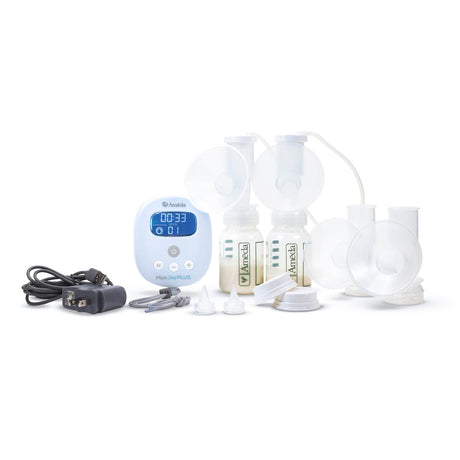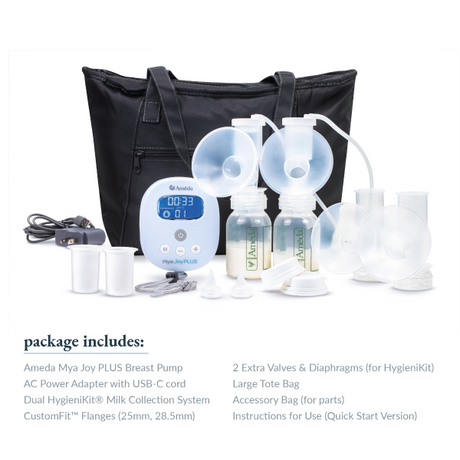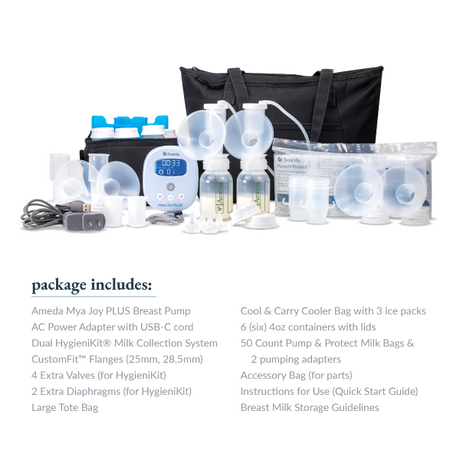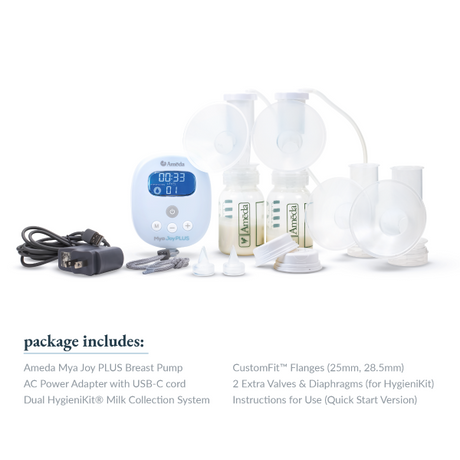Published:
by Leah DeShay, IBCLC
The days are getting shorter, the heat is dying down, the autumn equinox has passed, Starbucks has pumpkin spice and this all means one thing: it’s fall!
While many, if not most of us, enjoy the relief of return to school schedule after fun but tiring summer breaks, there’s hidden challenges for growing families: juggling school schedules when you are breastfeeding or pumping, especially for a new baby.
I myself, even as an Infant Feeding Specialist and IBCLC, just had a new baby this past summer and adjusting to elementary and preschool schedules while breastfeeding and pumping for my newborn has been more than I bargained for. Those of you in the same boat might find some of the following issues familiar:
- Engorgement during the commute
- Diaper changes and extra feeds threatening tardiness
- Leaking while driving/dropping off
- Helping older children prepare for school while caring for a new baby
- Traffic on the commute interfering with supply
What a juggling act for any parent! And while corralling more than one kid to school- especially multiple schools- is enough to make anyone feel like they’re in a circus, adding a new born makes the kids the ring leader! How do you bring things down to a dull roar long enough to at least enjoy the show? Here are some ways I’ve tried, and my experience this school year so far.
 Engorgement is a complex issue, but if you’re still dealing with it on a daily basis past 2 weeks postpartum, definitely see an IBCLC to makes sure latch, position, and transfer are adequately assessed and corrected. If however you only deal with them on the commute to pick up and drop off kids at school, there may be some quick fixes. Are you breastfeeding as close to your departure time as possible? If so, that can help give you the longest stretch of time between your next feed which will hopefully be in a couple hours, when drop offs are done. Because my baby happens to be pretty flexible, usually any time I offer the breast, he’ll take it, so this is a simple solution that usually works well.
Engorgement is a complex issue, but if you’re still dealing with it on a daily basis past 2 weeks postpartum, definitely see an IBCLC to makes sure latch, position, and transfer are adequately assessed and corrected. If however you only deal with them on the commute to pick up and drop off kids at school, there may be some quick fixes. Are you breastfeeding as close to your departure time as possible? If so, that can help give you the longest stretch of time between your next feed which will hopefully be in a couple hours, when drop offs are done. Because my baby happens to be pretty flexible, usually any time I offer the breast, he’ll take it, so this is a simple solution that usually works well.
However, if baby won’t wake up or feed well right before it’s time to leave, can you leave earlier so that you can breastfeed baby between drop offs or stop during the commute without worrying about kids being late? This might be an adjustment for everyone (elder siblings who aren’t morning people, for instance) but you can give the older kids ways to help- like choosing babies clothes, or checking the diaper bag to make sure it’s full- that will make them feel important and it will go way more smoothly. This also creates enough of a time cushion that any unplanned needs for extra diaper changes or short feeds outside the normal pattern for your new peanut will cause less distress between drop offs.
Now if you were like me and got up to make lunches, pack back packs and choose clothes for school age kids in the early morning light, this will cause a shift also. I found that doing this in the evening- before dinner, as a motivation to finish this prep work faster so they can eat- really took the stress out of mornings, and allows me to focus on making sure older kids and baby are fed well- and then I get to eat too! Plus if you have a partner who is home around dinner they can help with this as well, which makes it a family activity and a lighter load shared with everyone.
What about leaking during your commute? I’m sure you’re thinking, that’s nothing a decent bra and a breastpad can’t fix...but what if it’s a LOT of leaking? What if your baby unlatches while nursing in the car and milk sprays all over everything, or milk drips out your pump flanges? What if you forget your breastpads or it soaks through the pads AND the bras? And then you have to get out to walk your kid to their class or some other public visibility requirement where your perfect neighbors or your kids classmates might see you?! Who has time for that?
I learned a few weeks ago, when I had yellow baby breastmilk poop on the crotch of my pants (never had a diaper blowout while nursing your baby in your lap? Pray you never do LOL!) and had leaked all over and through pads and my bras on one side that I wasn’t as social embarrassment immune as I thought. I don't think I looked anyone in the eye besides my children. The next day? I packed a big baggy dress tunic in my trunk to throw on if that ever happens again. Now I am prepared so at least if another feeding related disaster happens to my clothes, I can throw that on and have some dignity AND still be on time.
All these things sound great and if they fall in line nicely with your day they work very well. But there’s always things you can’t control: tantrums from your kids, unplanned potty breaks, blow outs with your baby, and if you’re like me the greatest threat to your morning back to school commute is traffic on the road. If all else fails, and the morning goes all out of sorts, make sure that if you, like me, are feeling more engorged after an unexpected long drive, to massage and apply warmth to your breasts before nursing or expressing, and to add in extra, short nursing sessions throughout the rest of your day (or short mild extra pumps for a few minutes) to ensure that the pressure is relieved sooner than later. I’ve had two days like that so far, and though I felt like a Jessica Rabbit drawing when I got home, within a couple hours of massaging, mild warmth, and extra feeds here and there or short pumps with breast compression, I was right as rain.
It’s so easy to freak out and let anxiety get the best of you, but a little patience and perseverance goes a long way, and I’m finding that my body is as flexible as I allow it to be.
As stressful as the back to school season can be with a new baby, and despite poop on lap and breastmilk on my clothes, I’m learning a new how amazing and tenacious our bodies are, and that come hell or high water there isn’t a mother out there who won’t make sure her children are fed.
We will all have our chaotic days but wishing you a fast transition into an optimistic school year- however crazy your back to school circus may be!
DISCLAIMER: Ameda strives to present you with accurate and useful breastfeeding information. This article may contain information and ideas that are not necessarily the views of Ameda. It does not constitute medical advice. If you have any questions please contact your healthcare professional.








